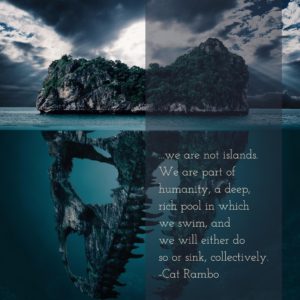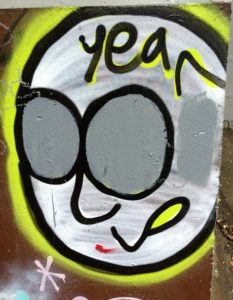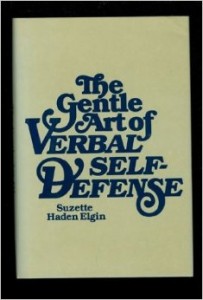

 Like many of you, I was taken aback by the results of the recent election, to the point of depression, dismay, and concern for our future. Part of my past week, though, was spent in Chicago at a conference for nonprofit leaders, and that served as a heartening antidote in some ways.
Like many of you, I was taken aback by the results of the recent election, to the point of depression, dismay, and concern for our future. Part of my past week, though, was spent in Chicago at a conference for nonprofit leaders, and that served as a heartening antidote in some ways.
Part of that experience was the reminder that our world holds people who don’t know where their next meal is coming from, or if they’ll have a dry place to sleep that night. That there are children who are abused, animals who are tortured, nations being oppressed, even eco-systems being destroyed. That so much is wrong. That so much needs fixing. Is it odd to say that was heartening? Because it was so inspiring to be around hundreds of people who have given their time and energy and so much more to help others.
It underscored the fact that we are not islands. We are part of humanity, a deep, rich pool in which we swim, and we will either do so or sink, collectively. The question of where to start with that is one that divides many of those who desperately want to fix things. And the truth is this: that helping wherever and whenever you can is fine, no matter what form it takes. The act of helping others enriches our souls and keeps them nourished.
...
 There are two impulses. One is to leave a legacy. Maybe it’s children or creations, good works, discoveries, or even a legacy of kind acts. There are other things to be remembered for, but those seem the most important.
There are two impulses. One is to leave a legacy. Maybe it’s children or creations, good works, discoveries, or even a legacy of kind acts. There are other things to be remembered for, but those seem the most important.
The other is this. To be able to say, at the end of one’s life, “You gave me this gift and I used and appreciated it. I looked at the way the wind moves in the trees and the flecks of light in more than one cat’s eye. I took time to watch sunsets and how they changed from minute to minute. I practiced gratitude for this wonderful world and the fact that is is always moving, always acting, even in the stillest moments. I participated in the dance and let myself hear the music. I listened when people were showing me their souls and in return they gave me bravery and honesty and joy.”
Joy IS the skill of skills. Everything is subservient to that collective joy, the shout of being and doing.
Will you, won’t you, will you join the dance today?
...

What: The Gentle Art of Verbal Self-Defense helps identify sneaky verbal attacks like back-handed compliments, insults disguised as jokes, and other jabs, as well as providing tactics for dealing with each other.
Who: Read this if you’ve ever felt bullied and didn’t know exactly why. Or if you’ve ever been accused of bullying someone in communication.
Why: Even if you feel totally in command of conversations, this book will help you write better dialogue by showing many of the constructions bullies use, as well as a better understanding of verbal interactions overall.
When: Read this when you’re at your wits end in dealing with a friend, colleague, or anyone else.
Where and how: Keep it handy for frequent reading. If you don’t understand what all the fuss is about, try working through the exercises.
...
Want access to a lively community of writers and readers, free writing classes, co-working sessions, special speakers, weekly writing games, random pictures and MORE for as little as $2? Check out Cat’s Patreon campaign.

"(On the writing F&SF workshop) Wanted to crow and say thanks: the first story I wrote after taking your class was my very first sale. Coincidence? nah….thanks so much."

(science fiction, story) Each day began with that horrible moment when he put a hand out to touch Mindy’s shoulder—hey, honey, I had this awful dream you died, in a boating accident, no less, when was last time we were on a boat. Then the stomach dropping realization, sudden as stepping out into an elevator shaft.


This site is protected by reCAPTCHA and the Google Privacy Policy and Terms of Service apply. This site is a participant in the Amazon Services LLC Associates Program, an affiliate advertising program designed to provide a means for sites to earn advertising fees by advertising and linking to Amazon.com.